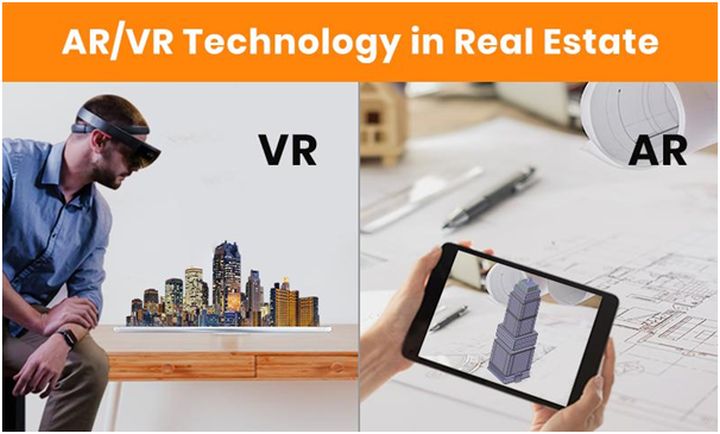Future of Custom Real Estate Web Platforms

As technology continues to evolve and evolve daily, many brokerage owners are constantly wondering what lies ahead for them. The presence of large portals and large affiliated brokerages has left many questions unanswered about the competitive landscape and why having a meaningful online presence is still essential. The good news is that websites aren’t going anywhere anytime soon, and it’s never been more critical to build a real estate website that displays your brand, values, and what sets you apart from others.
Web presence becomes even more important
While it’s no surprise that a website is still vital to a brokerage’s business strategy, having an online presence will become even more critical as we forge ahead into the future with the latest technologies and data. Consumers will continue to seek validation and contact brokerage houses through traditional advertising. It will be essential that your website reflects your brand and encourages the visitor to interact with your brand. Moreover, your website will act as a hub for consumers to learn about your brokerage and agents on a more meaningful level that portals and other listing sites can’t compete with. Personalizing your website with a unique take on your brand that other listing sites can’t achieve will be the next wave of presence and influence.
The Future of Real Estate and the Impact of Digital Technology
In terms of exploitation, real estate has a relatively low technological infrastructure. And it’s time to change the scene. Only 40% of realtors actively use social media and online realtor websites to sell real estate.
By the end of 2024, technology will be more than just a trend; it will be critical. Technology will drive positive customer interactions, enhance data collection to capture lead insights and improve operational efficiency.
Your potential customers are looking for a convenient way to find their dream home, office, or store. People will only prefer the most personalized and customer-focused real estate website or app. And to build a real estate website, you must know how best to use technology.
What is a real estate web application?

How to build a real estate website that will make a profit? Let’s first understand what a real estate web application is.
A real estate website can be uncomplicated or complicated, linking a database of houses, realtors, and customers. There should be a real estate catalog with a characterization, terms of collaboration, services, prices, a feedback form, and other contacts. A blog doesn’t hurt, either. It will help develop the base of critical phrases and supply valuable data to those who want to buy or rent a home. You should consider the trends to build a real estate website.
Trends to consider when deciding to build a real estate website
Artificial intelligence

A machine can unravel issues by learning how users interact based on criteria. It is similar to how our brains process data and make critical decisions. So what does this suggest for real estate? It means that your website will need to act as a predictive platform where you can meet the needs of your consumers before they even go to your website. It can be achieved on several different fronts. To build a real estate website, remember that one quick example is the use of artificial intelligence chatbots. Someone visits your site, and the bot greets them immediately. The bot can determine (using a set of data/questions) what it is interested in and what actions to take with the visitor. This could be scheduling an impression, confirming a link to an appropriate resource, or giving the user the right place on the website. It is achieved through a chatbot, so the machine learns about your customers and what they need when they need it. Artificial intelligence will become increasingly popular (and automated) as we move into the future.
AR and VR in real estate

With their help, realtors, real estate agents, and potential property buyers can give and receive a personalized real estate experience from anywhere in the world. AR and VR features help customers checkout without visiting them and easily compare different options while staying in the same place.
With the help of the AR/VR application, you can now run virtual excursions of properties with a 360-degree view of the exterior and interior of all properties. It’s safe to say that AR and VR have a promising future for the real estate industry.
The most beneficial characteristic is that you can virtually stage real estate listings, show unfinished spaces, and change the home’s appearance on-site to suit viewer tastes and choices by overlaying computer-generated images on the virtual simulation.
Automation of real estate tasks

Real estate agencies maintain much work and many tasks. Performing all tasks manually will take a lot of time and resources. Automation simplifies these paper and routine tasks and helps you focus your skills and time on selling real estate.
To build a real estate website, consider the fact that by automating critical tasks such as monthly invoice processing, sending emails, online chat, and a range of other administrative and communication functions, real estate companies have preserved a lot of funds and time to concentrate on sales.
Big data in real estate

Big data (BD) and business intelligence (BI) are popular when we speak about the digitalization of real estate. Without them, the greatness and strength of a real estate mobile app are difficult to speculate.
Big data and business intelligence can assign property owners, real estate agents, and clients to the interaction process. Once you understand the collected data, it will be easier for you to answer the question of what will happen.
Real estate firms have now realized that in a digital world, getting insights from data reduces the amount of preparatory work required and ensures a return on investment. The future of real estate agents seems optimistic, thanks to big data, as better opportunities open up before them every time.
Data science and analytics will be an essential part of the future of the real estate industry. Next year, technology will allow companies to analyze data as a long-term strategy.
Lifestyle Search
If you need to build a real estate website it is important to understan that search has become an increasingly important topic of discussion as portal websites have taken the first step towards improving the search experience outside the brokerage website. Even though they have done an excellent job, you still have a few opportunities to capitalize on your website by customizing search in a way your consumers have never experienced.
Websites should act as a medium for visitors to understand the specific areas you serve and provide them with data that no one else can. For example, your brokerage may create “micro-community” pages that no other portal or competitor pays attention to. You can then provide meaningful data, such as geography, lifestyle, demographics, etc., to become an expert in the field. In turn, you also become an expert at finding that space. Searching for a lifestyle means using data and information on a very personal level that no one else can provide. Portals will go this far with these types of pages because they target high volume/high yield markets and don’t want to dive deeper into smaller subsets of data.
Time to Digitize Your Real Estate Business

Some people buy property when the market seems cold, while others only catch up when prices skyrocket. It proves that the future of the real estate industry is optimistic with clients all year round.
The future of the real estate market depends on technology, which is promising. Almost all of the future real estate trends we’ve talked about here are related to smartphone apps in one way or another. So, your first step is to check the Northell site and find all th information about how to build a real estate website.
